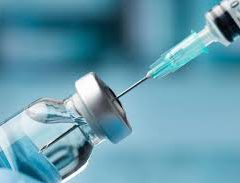The Role of Dietary Supplements in Hair Health: What Works?

When it comes to achieving luscious, vibrant hair, many individuals turn to dietary supplements for help. With numerous products available on the market, the question arises: do supplements for hair really work? Understanding the role of dietary supplements in hair health, the key ingredients to look for, and the science behind them can help you make informed decisions about your hair care routine.
Understanding Hair Health and Growth
Hair health is influenced by several factors, including genetics, hormonal balance, environmental factors, and nutrition. Hair grows in cycles that consist of three main phases: the anagen phase (active growth), the catagen phase (transitional), and the telogen phase (resting). Nutritional deficiencies during any of these phases can result in hair thinning, loss, and poor overall hair quality. This is where dietary supplements come into play, as they aim to provide the nutrients necessary for optimal hair growth.
The Hair Growth Cycle
To appreciate how supplements for hair can help, it’s crucial to understand the hair growth cycle:
- Anagen Phase: This is the active growth phase, lasting anywhere from two to six years. Hair follicles produce new hair cells during this time.
- Catagen Phase: This transitional phase lasts a few weeks. Hair stops growing and the hair follicle begins to shrink.
- Telogen Phase: The resting phase lasts around three months, after which the hair falls out, making way for new growth.
Common Causes of Hair Loss
Before diving into the benefits of supplements for hair, it’s important to understand the common causes of hair loss:
- Genetic Factors: Androgenetic alopecia, commonly known as male or female pattern baldness, is the most common form of hair loss, primarily influenced by genetics.
- Hormonal Imbalances: Conditions such as polycystic ovary syndrome (PCOS) or thyroid dysfunction can disrupt hair growth.
- Nutritional Deficiencies: Lack of essential nutrients can significantly impact hair health, leading to thinning and loss.
- Stress: Both physical and emotional stress can trigger hair loss conditions like telogen effluvium.
The Importance of Dietary Supplements for Hair
Dietary supplements designed for hair health can fill nutritional gaps and support optimal hair growth. These supplements typically contain a combination of vitamins, minerals, and herbal extracts that are believed to promote hair strength, thickness, and growth.
Key Ingredients in Hair Supplements
When selecting a supplement for hair, look for products that contain the following key ingredients:
1. Biotin (Vitamin B7)
Biotin is one of the most popular ingredients in hair supplements. It plays a crucial role in the production of keratin, the primary protein in hair. Studies have shown that biotin deficiency can lead to hair loss, making it a vital ingredient in any effective hair supplement.
2. Vitamin D
Vitamin D is essential for hair follicle cycling. Research suggests that vitamin D deficiency may be linked to alopecia areata, an autoimmune condition that results in hair loss. Ensuring adequate levels of vitamin D can help maintain healthy hair.
3. Iron
Iron is important for oxygen transport in the blood. Low iron levels can lead to anemia, which is often accompanied by hair loss. Supplements containing iron can support hair growth by ensuring that hair follicles receive sufficient oxygen.
4. Zinc
Zinc plays a vital role in hair tissue growth and repair. It helps maintain the oil glands around the hair follicles. Studies have indicated that zinc deficiency is linked to hair loss, making it a crucial component of hair supplements.
5. Amino Acids
Amino acids are the building blocks of proteins, including keratin. Specific amino acids, like L-cysteine and L-methionine, are often included in hair supplements to promote healthy hair structure.
6. Folic Acid (Vitamin B9)
Folic acid is important for cell division and growth, making it essential for healthy hair follicles. It helps support the rapid cell turnover that is necessary for hair growth.
Benefits of Dietary Supplements for Hair Health
Incorporating a supplement for hair into your daily routine can offer several benefits, including:
- Enhanced Hair Growth: Many individuals report improved hair growth after consistent use of hair supplements, particularly those containing biotin and other essential nutrients.
- Reduced Hair Loss: By addressing nutritional deficiencies and hormonal imbalances, supplements may help reduce shedding and prevent further hair loss.
- Improved Hair Quality: Supplements can enhance the overall quality of hair, making it stronger, shinier, and more resilient to damage.
- Stronger, Thicker Hair: Regular use of hair supplements can lead to noticeable improvements in hair thickness and density.
Choosing the Right Supplement for Hair
Selecting the right supplement can be overwhelming due to the wide variety of products available. Here are some tips to help you choose a high-quality hair supplement:
- Research Brands: Look for reputable brands that use high-quality ingredients and provide transparent information about their products.
- Check Ingredients: Ensure the supplement contains the key nutrients essential for hair health, such as biotin, iron, zinc, and vitamins.
- Quality Assurance: Choose products that have undergone third-party testing for purity and potency.
- Dosage Recommendations: Pay attention to recommended dosages and choose a supplement that aligns with daily intake recommendations for the key ingredients.
- Consult a Healthcare Professional: If you have existing health conditions or are taking medications, consult with a healthcare provider to ensure the supplement is appropriate for you.
Other Natural Ways to Support Hair Health
While dietary supplements can be beneficial, they should be part of a holistic approach to hair health. Here are some additional methods to promote healthy hair:
- Balanced Diet: Incorporate nutrient-rich foods into your meals, such as fruits, vegetables, whole grains, lean proteins, and healthy fats.
- Scalp Care: Regularly massaging your scalp can stimulate blood flow and encourage hair follicles to grow.
- Stress Management: Engaging in stress-reducing activities, such as yoga or meditation, can help mitigate stress-related hair loss.
- Gentle Hair Care: Avoiding harsh chemicals and heat styling can prevent damage and promote hair health.
Conclusion
In conclusion, dietary supplements for hair can play a significant role in promoting hair health and growth. Ingredients such as biotin, iron, and zinc have demonstrated efficacy in supporting hair vitality, making them key components of effective hair supplements.
While hair supplements can contribute to healthier hair, they should be viewed as part of a comprehensive hair care routine that includes a balanced diet, proper hair care practices, and stress management. By making informed choices about hair supplements and adopting a holistic approach to hair health, individuals can maximize their chances of achieving beautiful, vibrant hair.



